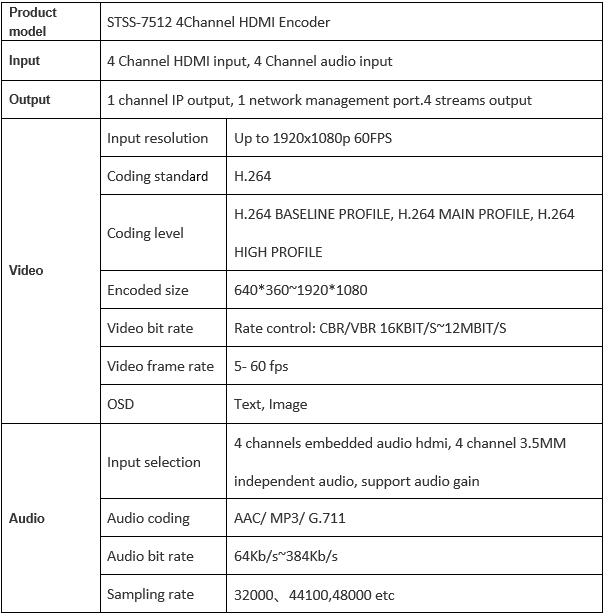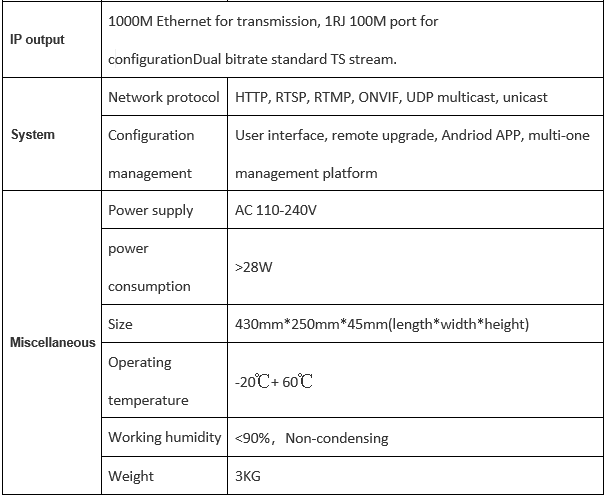Input: 4HDMI & 4 audio input
Encoding: H.264
Output: 1channel IP output, 1 network management port,4 streams output
Support: HTTP, RTSP, RTMP, ONVIF, UDP multicast, unicast
1. Resolution:1920x1080p/1920x1080i/1280x720p/720*576i/720*576p/640*480i (customization available)
2. Support RTSP/ TCP/ RTMP/ HTTP/ ONVIF/ UDP unicast and multicast protocol
3. Support the Main TS stream and the sub-TS stream use in different network protocols for transmission
4. Encoding level: 1, 2, 3, 4, and 5 (higher the level, the larger of the code flow fluctuation ratio )
5. Coding Standard: Baseline profile/ main profile/high profile, H.265 main profile.
6. Audio: MP3, AAC, G.711, sampling rate: 32000,44100, etc, encoded audio bit rate: 48K, 64K, 96K, 128K, 160K, 192K, 256K
7. Video bitrate Control: CBR / VBR 16KBIT / S ~ 12MBIT / S
8. Video packaging: FFMPEG
9. Transmission: TCP, UDP, 100M for configuration/ 1000M for transmission(RJ45 Duplex network port)
10. Support WEB access in Chinese/ English, passwords change, WAN remote management (WEB)
11. Support Text/ image OSD, images superimposing.
12. Supports automatically obtain IP (DHCP), supports One-key recovery, upgrade, and remote maintenance.
13. Support build-in or external audio input, support left and right sound channel, Support audio gain, and turn volume individually.
14. Support encoding without video signal;
15. Take effect immediately when applying the settings, don’t need to restart.
16. Support one-key recovery to default setting.


Usually, streaming encoders are suitable for IPTV systems. As it supports many protocols: RTSP/ TCP/ RTMP/ HTTP/ ONVIF/ UDP unicast and multicast…, and can be used for network, internet.
While broadcast encoder output is ASI/IP with UDP unicast and multicast protocols, which is usually used for local area networks.
ASI connects digital modulators to out RF signal for the Cable system.
It has higher image quality and more stable output stream bitrate and is usually used in CATA, and DVB-T/T2 wireless transmission systems.